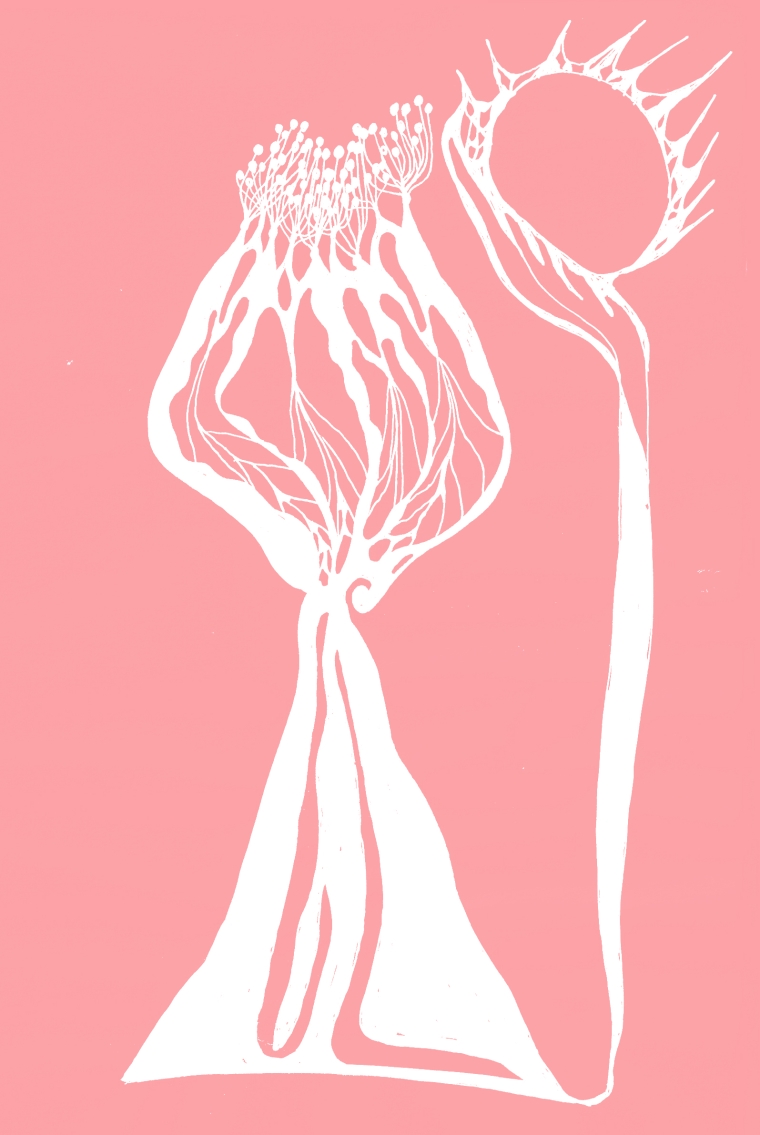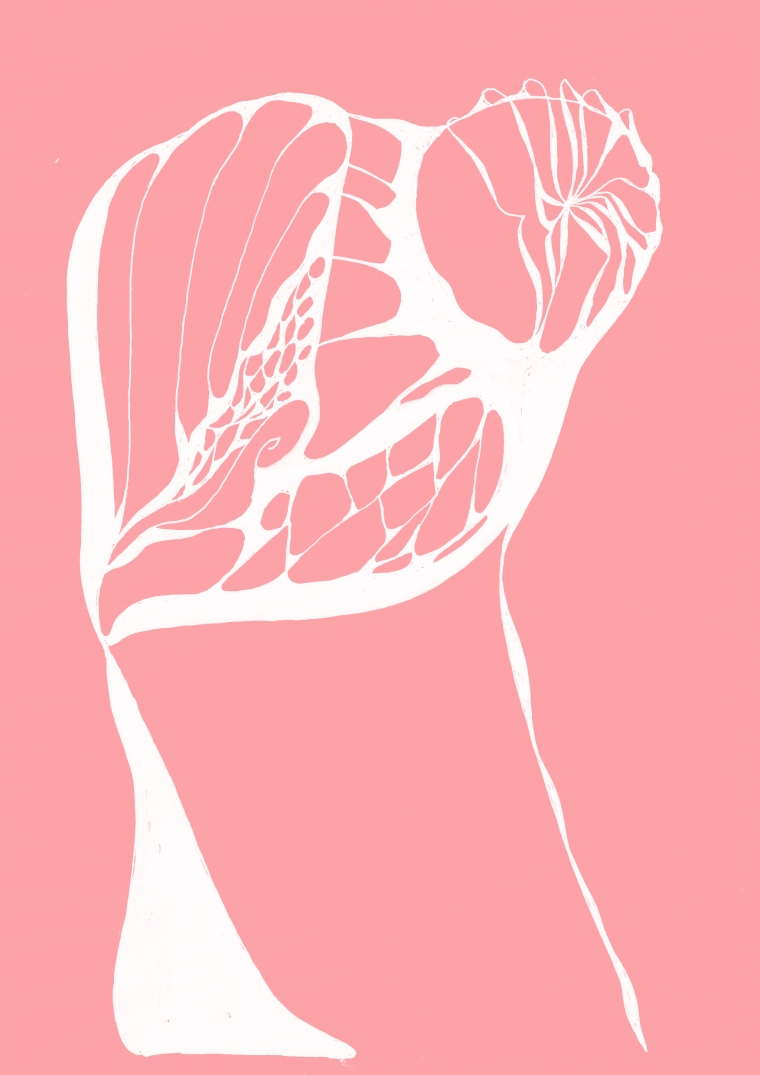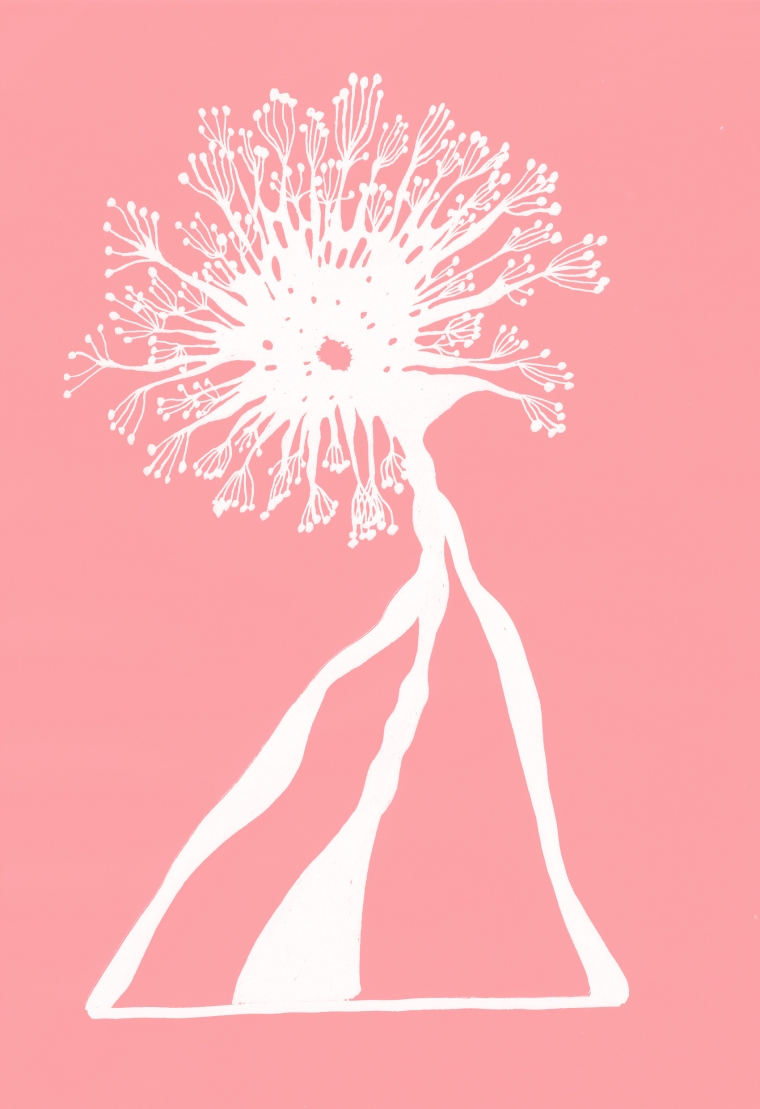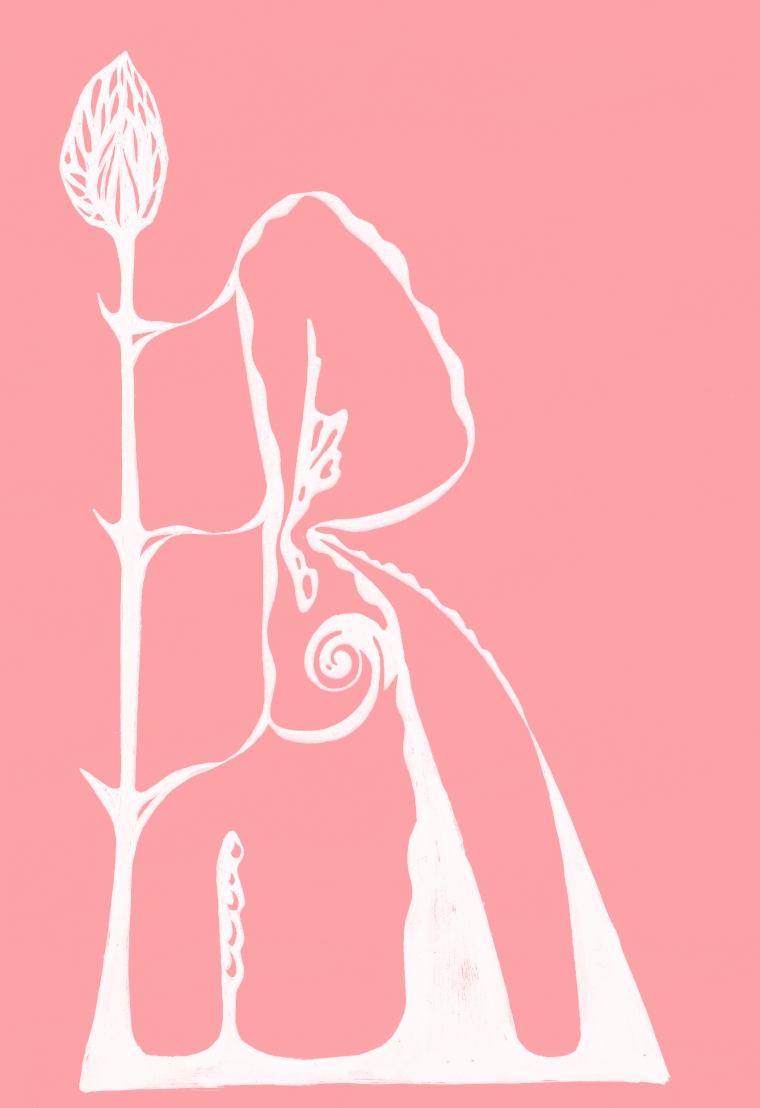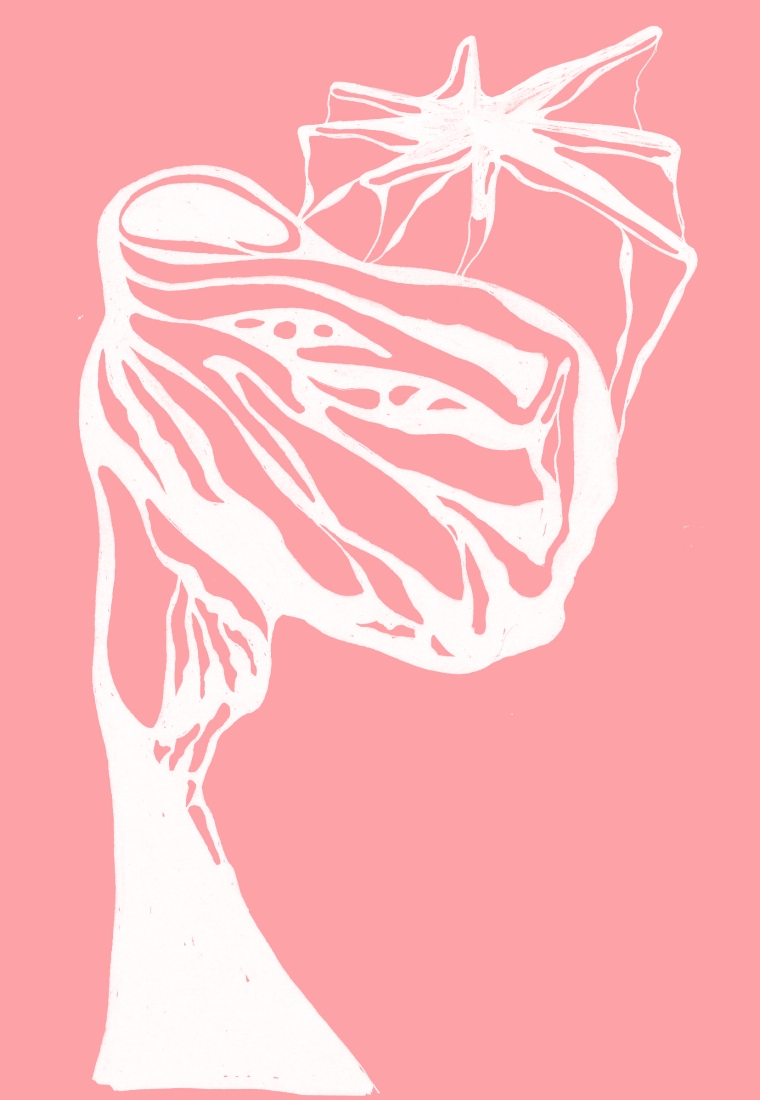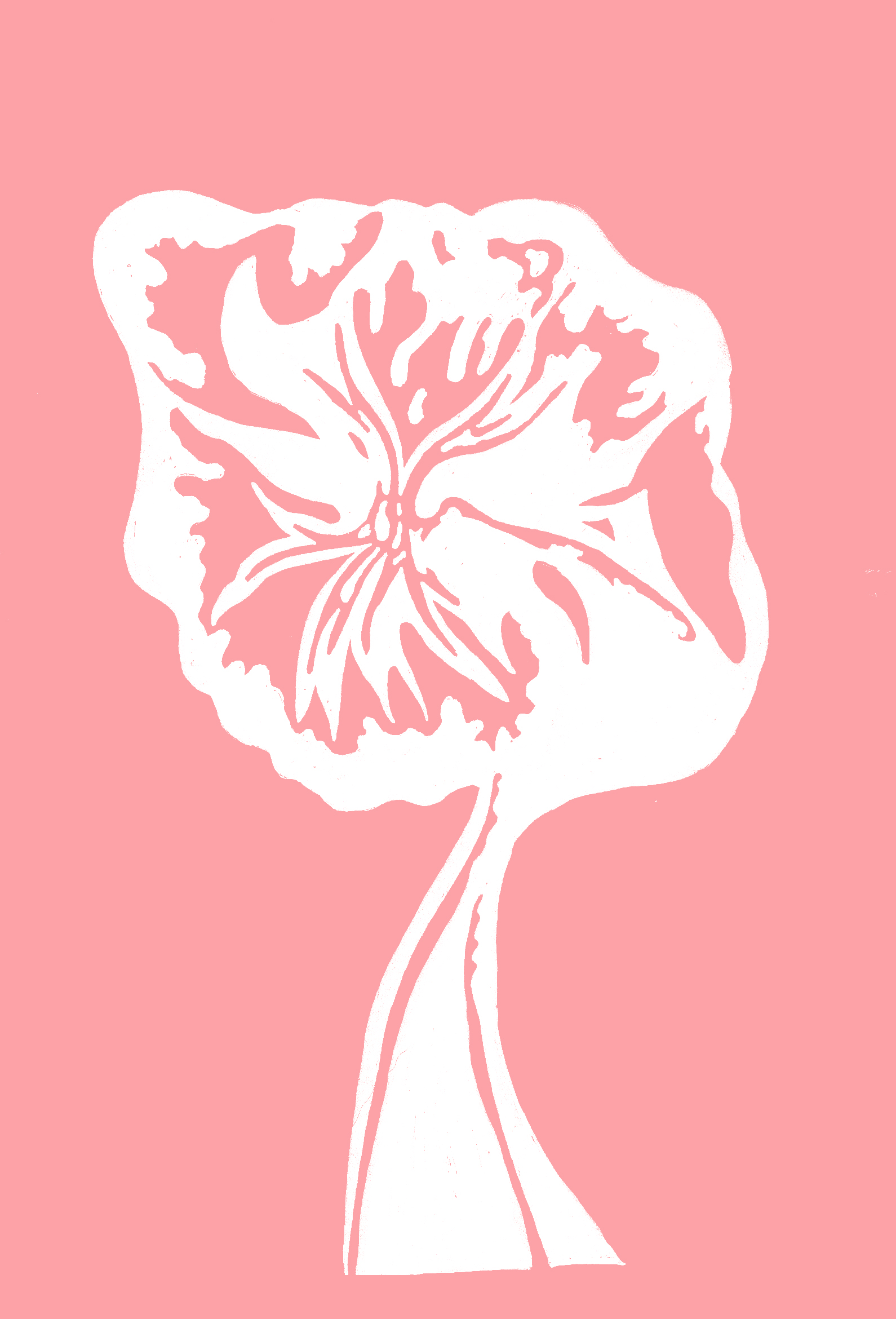
Cristiana Vale Pires is a founding member of Kosmicare and has been involved in developing strategies for harm reduction for drug users, campaigns to promote mental health awareness and advocating gender-conscious approaches to care provision. She also works in the delivery of psychological support for people who consume drugs. Kosmicare is a grassroots organisation responsible for running a wide range of harm reduction programmes to improve the health (both physical and psychological), well-being, safety and general quality of life of people who consume drugs recreationally, be that as part of nighttime leisure activities or in situations where the user might be socially vulnerable. Kosmicare has been at the forefront of social innovation in harm reduction in Portugal. In recent years, it has introduced ground-breaking support services and person-driven, evidence-based intervention approaches when responding to the needs of people who use drugs. This includes drug-checking services (i.e. offering chemical analyses of psychoactive substances), an onsite presence at various nighttime leisure venues, the establishment of psychological support and harm-reduction clinics, mental health first aid (or psycare) at festivals and targeted support programmes for people who practice chemsex. The organisation also independently conducts research in the field, allowing them to critically and effectively evaluate and improve the services they provide, in step with ever-shifting trends in the buying and selling of drugs, changes in user habits, as well as demographic changes and social change in the urban setting. By promoting initiatives that foster critical public debate, based on scientific evidence, Kosmicare has also contributed to reducing the kinds of stigma that negatively affect the health outcomes and social integration of drug users. Moreover, they are engaged in developing an inclusive and diversity-driven approach in all their work, particularly when it comes to gender and sexual orientation.
Isabel Carvalho
How did Kosmicare come about, and what circumstances led to its creation? What were its first concerns, and what sort of scope did it have when it first began?
Cristiana Vale Pires
Kosmicare was born out of Boom Festival as a service to provide support and care for people in psychological distress, either because they had consumed drugs or were overwhelmed by the festival experience itself, but also for any other reasons that might have meant they needed psychological support. It was also there, in collaboration with some other groups, that we developed a prototype drug-checking service, later developed and adopted by Kosmicare. With the backing of the Boom Festival organisers, Kosmicare was established as an independent organisation in 2016 with the involvement of individuals who had worked either in harm reduction or doing psycare at the event. By 2018, we were working at the festival in a completely independent capacity. In 2019, we received public funding for the first time via the Operational Integrated Response Plan (PORI – Plano Operacional de Respostas Integradas), part of the government’s General Directorate for the Intervention in Addictive Behaviours and Dependencies (SICAD – Serviço de Intervenção nos Comportamentos Aditivos e nas Dependências), and with additional support from the Lisbon City Council. In April of the same year, we began working in cities, providing the same harm reduction service, drug testing and psychological support on an ongoing basis. Through our work, we aim, above all, to contribute to safer patterns of drug use, to promote drug users’ overall welfare and quality of life and to the empowerment and destigmatisation of people who take drugs. Our approach is centred on three fundamental elements, which are all interconnected: research, community intervention, and advocacy for the adoption of more holistic, fair and inclusive policies and attitudes to drug use.
Isabel Carvalho
During the Covid-19 lockdown, how did you provide support for those who needed it?
Cristiana Vale Pires
Kosmicare is made up of a group of people drawn to designing and planning intervention approaches for and in consultation with people who use drugs in a social setting. The pandemic forced us to rethink how we did our work because both social interactions and drug use were significantly curbed and because we had to adapt our approaches to support people stuck at home, people who might nevertheless have continued to consume drugs and who also might be doing so entirely by themselves. At this stage, we researched what changes could be immediately observed within the drug trade and how consumption patterns had shifted in response to lockdown. We also established an online intervention platform that provided information on drugs in general and drugs tailored to the lockdown scenario. We also moved to a booking system for face-to-face consultations (for example, for handing over drug samples for testing), and our psychological support and harm reduction services also moved online, and even since lockdown ended our services have continued to be available online. The format seems to be more sustainable in the long-term for our organisation and is, in any case, better fitted to young people’s lifestyles. Doing things this way also allows us to work at a national, rather than only local level, and perhaps one day, it will also mean we can expand our services to be available abroad.
Isabel Carvalho
Your work has sought to provide support to people going through mental crises while under the influence of or after taking certain substances, particularly psychotropic drugs. Given that using these drugs is not only illegal but also subject to a degree of stigma not only socially but also in the broader culture, we tend to see the drugs themselves blamed for whatever negative effects might follow from them, and this means other factors that might feed into the crises people experience can often be neglected. You’ve said that often, the issue is not the drugs themselves; instead, the crises have to do with something in the individual’s personal life. How does the work you do help people understand and come to terms with their experiences with drugs? Does what you do ever present the opportunity for people to learn more about themselves when they come to you?
Cristiana Vale Pires
At Kosmicare, we prefer to focus on the individual rather than to narrowly obsess over whatever drugs they might have taken, whether it might be addictive, etc. Instead, we ground our approach in the scientific evidence, and hope that in doing so we can provide a counterpoint to the superficial, moralising views of drug use that are so prevalent. We do recognise that the use of psychoactive substances doesn’t come without risks, but also see that it can have benefits. There’s a reason why humans have revered these substances throughout our history – some, for example, have definite health benefits. More broadly, they satisfy the human yearning to discover new things and our natural desire to have meaningful, pleasurable experiences.
More broadly, [psychoactive substances] satisfy the human yearning to discover new things and our natural desire to have meaningful, pleasurable experiences.
Isabel Carvalho
I’d also like to discuss Foucault’s idea of “technologies of the self”, which came up earlier in our conversation. Seizing upon that idea, do you think it’s possible to see drugs as technologies of the self or as tools for self-understanding and self-care?
Cristiana Vale Pires
Drugs can certainly be understood as technologies of the self, yes. They allow us to explore our minds, to discover and understand new things about ourselves. They can even provide the basis for dealing with trauma and adversity in our own lives, tackling internalised oppressive prejudices, and also help when it comes to negotiating the drudgery and strains of everyday life. Besides that, they can be used to heighten our pleasure while partying or dancing, as a way of experimenting with new and different ways of being with other people, or as a stimulus for creative thinking. And so, yes, we believe that certain kinds of drug use do put us in touch with ourselves and likewise allow us to gain insights about ourselves, besides providing access to a kind of unique space outside the realms of the ordinary that means we can in some way transcend the tedious repetition of the daily grind.
Isabel Carvalho
Today, our mental health is subject to attacks from all sides: employment precarity is worse than ever; people are filled with anxiety about the future; many of the old social safety nets have been eroded; and global events (pandemics, wars, runaway inflation and so on) are having an effect on our daily lives more and more. Meanwhile, we are seeing a rampant increase in the demand for productivity, with the lines between people’s personal and work lives becoming increasingly blurred. The demand for productivity, for us to be productive, has almost swallowed us up completely. Where do drugs fit in for you in terms of the relationship between work and leisure under capitalism? How do the environments they’re being used in reflect this, and what differences have you observed in this respect from one generation to another?
Cristiana Vale Pires
What you’ve just mentioned is a very complex issue that would require a great deal of time to deal with in any proper detail. Nonetheless, what we can say with confidence is that while drugs themselves are what we’d call value and context neutral, people’s sense of the risks and benefits associated with drugs, why and how often people take them, are influenced by and evolve according to defined societal mores. Certain broader events also impact the supply of drugs on the illegal market and how the buying and selling of drugs is organised, which in turn trickles down to people’s habits, also increasing or decreasing the risks of taking certain drugs. It also bears mentioning that national and local drug intervention programmes, people’s views of drugs and the current legislative framework for these substances are contingent on political trends, which tend to favour strict regulation or complete bans. There are a few prominent examples of times when consumption trends have changed significantly or where the use of psychoactive substances has intersected with public life in a significant way. Take first the growing acknowledgement we are seeing of the potential benefits of using psychedelics and cannabis, which has led to a broader debate about their potential usefulness in therapeutic settings. Another thing is how stimulants have become much more popular, often used to bolster capitalist productivity. And if we look back, we can note how important psychoactive substances have been at various times to many countercultural movements.
Isabel Carvalho
There are also several characteristic reasons why people in the arts choose to take drugs. The most obvious is that they use them to boost their creativity or to help them work better or for longer, and besides that, there’s the recreational side too – and that artists would do drugs for any of these reasons is somehow taken for granted. Equally widespread is the impetus to take drugs in order to “open new pathways in the mind”, to explore and broaden the self and also perhaps as a way to mitigate the pressures felt in what is, in reality, a highly competitive field. Of course, the motives for drug use are highly variable, and we’d struggle to categorise them all, given how interlinked they tend to be. But here we find ourselves straying into the connection between drug consumption and mental health, something you don’t often hear discussed. So, I’m curious for you to share any knowledge and experience you might have that’s relevant here.
Cristiana Vale Pires
The reasons that lead people to use drugs are many and diverse. A single person might consume various psychoactive substances for a variety of different reasons: maybe they do it to relax, or to heighten the pleasure they get from doing something, or to deal with personal issues, as a way of self-medicating, or to try to understand themselves or get their creative juices flowing ... and so we can think of drugs as tools, or as technologies of the self, according to the Foucaldian definition, that is, as something we find at our disposal that might be used to achieve various ends. Whatever these ends may be, the thing that drives people to consume these substances is the sense that the altered states they induce are somehow useful or provide a benefit to the user. The situation gets somewhat more complicated when a person falls into a pattern of substance use where the drug takes on an overly prominent role in their everyday life, impacting their day-to-day functioning, causing them to be unstable or having adverse effects on their health, well-being and/or social life. Since our approach focusses on the users themselves, understanding what drives people to consume these substances is a key part of our work. It allows us to tailor our support to whatever specific needs a person or group of people might have. I should also stress that, as an organisation, we don’t consider certain motivations for drug use as more valid or justified than others, and it’s up to an individual to decide what they are looking to get out of their experience with drugs. Likewise, they are the ones who identify aspects of their use that might be causing them trouble and what they might want to learn more about, understand or change when it comes to their relationship with these drugs.
Isabel Carvalho
Moving on now to how drugs are represented, I think it’s really important there’s useful information available that is backed up by sound research and based on what science knows about drug consumption. At Kosmicare, you often enlist illustrators and musicians, some of whom are even part of your own team, to help share your initiatives and create materials to share on your online platforms. How important a role does this play in your work?
Cristiana Vale Pires
At Kosmicare, we put a lot of effort into making it so both our team and the materials we publish are representative of the people we work with and for, and try likewise to keep it in tune with their social and political values. How the materials we publish look visually is really important to us, and we collaborate with artists and designers who share our desire to work out an appropriate visual language for communicating our perspective on drugs. And as it happens we count several artists among us at Kosmicare, like Mar Cunha (@wandalismo), who’s an illustrator, and Pedro Monteiro, aka Balancé and Sasha, aka Sasha Theft.
Isabel Carvalho
How can we create environments where drugs are consumed safely?
Cristiana Vale Pires
Before anything else, we must challenge social stigmas around drugs and those who consume them. We know that the stigma associated with consuming certain psychoactive substances causes certain groups to be more marginalised than others and renders them more vulnerable. So we need to confront these reductive, highly stereotyped views of drug users, which lead them to be merely viewed as “sick” or “deviant”. Adopting people-focussed intervention models is also critical as an alternative to the biomedical model, which is hyper-focussed on the drugs to the detriment of everything else and whose treatments rarely go beyond requiring people to stop taking drugs completely. The medicalisation of drug use creates a stark dichotomy between the ideal of complete abstinence on the one hand and inherently problematic drug use on the other, and this only means drug users are pathologised, completely alienating anyone who is either ill-equipped, incapable or unwilling to give up taking these substances. In light of this, we think it’s essential we embrace a human, pragmatic approach that recognises that not all drug consumption is bad or necessarily harmful and that many people take them precisely because they feel they have a positive impact on their lives. Finally, it’s crucially important that we advocate for a more comprehensive, just and science-backed drug policy. Besides forcing the drug trade underground and exacerbating the risks associated with drug use, the prohibitionary model acts as an arm of systemic oppression that disproportionately polices and criminalises racialised people, those affected by poverty, migrants and people from minority ethnic groups. In taking an intersectional approach, we see how prohibitionism reproduces and exacerbates the existing structures of misogynist, racist and classist power oppression present everywhere in the Global North. Challenging society’s views on drugs, advocating against anti-drug policies and basing our intervention programme on scientific evidence and in a way geared toward social justice are all key elements contributing toward establishing a safer physical, legal, social and emotional environment for people who consume drugs.
Isabel Carvalho
Kosmicare has expanded a lot since it first started, and your initial focus on drugs has now expanded into other areas, with your evident commitment to activist politics a constant throughout. I’d like to know what kinds of support you are delivering right now, what areas you find yourself doing the most of, and what sorts of communities you come into contact with most often in your work.
Cristiana Vale Pires
At Kosmicare, we are committed to the struggle for social justice and equality, and we don’t think it makes sense to advocate for the rights of drug users without acknowledging the political struggles of so many other historically oppressed communities. We are intersectional feminists and allies to people fighting in the anti-racist struggle, for LGBTQIA+ rights and for decent and affordable housing for all. We are also aware that the default position on drugs and drug policy and intervention is based mainly on the experience of straight, white, heterosexual men. The patriarchal and Eurocentric standard in drug-related healthcare (and other areas too) invisabilises women, LGBTQIA+ people and people of colour. In recent years, we have been working on various projects and activities with the goal of arriving at a drug intervention approach that is fully inclusive on issues of gender and sexuality. We founded a psychological support and harm reduction counselling service and community network, first in Lisbon and then in Porto, to provide targeted support to LGBTQIA+ drug users. We have also conducted research and factored in the specific experiences of women and LGBTQIA+ people who use drugs in both the materials we produce and in our counselling, psychological and psychosocial support services. In the medium to long term, we are committed to undertaking the important task of fashioning drug intervention approaches informed by an understanding of the intersection of drug prohibition and structural and symbolic racism in Portugal.
Besides forcing the drug trade underground and exacerbating the risks associated with drug use, the prohibitionary model acts as an arm of systemic oppression that disproportionately polices and criminalises racialised people, those affected by poverty, migrants and people from minority ethnic groups.
Isabel Carvalho
Lastly, I want to give you space to address our readers directly.
Cristiana Vale Pires
Kosmicare provides a variety of services for people who use drugs. In Lisbon (at Rua Cesário Verde, 17b) and various festivals, we provide useful information and expert advice on how to minimise risks when taking drugs and we have a drug-checking service where we run a chemical analysis on any psychoactive substances people might have. These services are free at the point of use, and this is possible because of the public funding we receive via SICAD in Lisbon, the money we get from festivals and the funds we accrue via donations. Anyone interested in using our services or supporting our work with a donation can go to our website (kosmicare.org), our socials (@akosmicare) or write to us at contact@kosmicare.org.
We also have an online psychological support and harm reduction consultation programme (available in Portuguese, Spanish and English), led by one psychologist and two psychiatrists, one where we try to create a safe space, free of judgement, where people can have honest conversations about drugs. This service reflects our recognition of the pursuit of altered states of consciousness as a legitimate form of human activity, and, more than anything else, we’re looking to provide a space where people can reflect, reassess and reconceptualise or give new meaning to their drug use. We speak with people who have experienced difficult psychological or social experiences following deliberate or unintentional consumption of psychoactive substances, people who are having difficulties managing their consumption or are simply planning an experience with drugs in the near future. The professionals who run these services conduct themselves according to person-centred ethics and do so in a diversity-conscious manner anchored in principles of social justice. To find more information about these services and request a price list, please drop us a line at consulta@kosmicare.org.
Drawing: © Clara Batalha / Isabel Carvalho, 2023.
Translation: Vita Dervan.
Leonorana magazine presents “We Care A Lot”, a series of conversations that place mental health at centre stage in understanding contemporary culture. Produced in partnership with maat for maat extended, this special issue of the magazine bears witness, through dialogues in different voices, to experiences of community, mutual care and happy interdependence currently being practised in the fields of art and culture. Recognising the breadth and nuances of contemporary thinking about care, this series – conceived by Isabel Carvalho and boasting the participation of Susana Caló, Nina Paim, Andrea Magalhães, the Pedreira collective and the Kosmicare collective – seeks to shine a spotlight on ways of living and thinking collectively, and allows us to see the ways mental health care practice asks us (and this is a good thing) to exist in relation to other beings, be they human or otherwise.
The name Leonorana comes from Ana Hatherly’s book Um Calculador de Improbabilidades (Quimera, 2001) and the magazine is a tribute to this author. It resumes and updates the central focus of her work, namely concerning the study and experimental practice of the complementarity between verbal and visual languages. Each issue of the annual magazine addresses a different theme, which is defined in dialogue with a guest editor, with whom the editorial methodology and orientation are also outlined. These are proposed to guest authors, who accept to share their interests, processes and accomplished works. The essay is the preferred genre as it is the one that is most adequate to the translation of the thought in formation and that best allows to undertake speculative approaches.


